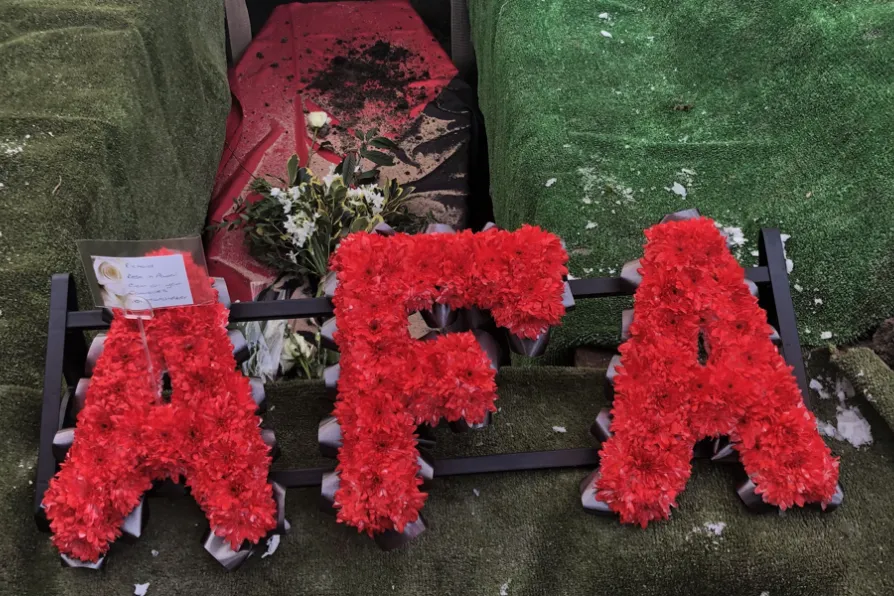
 Richard Bircumshaw is laid to rest
Richard Bircumshaw is laid to rest
LEFTWINGERS in Lancashire paid tribute today to a “warrior” of the working-class movement.
More than 100 anti-fascists, anarchists and socialists turned out for the funeral of Richard Bircumshaw in the West Pennine Remembrance Park, Bolton.
[[{"fid":"10557","view_mode":"inlineright","fields":{"format":"inlineright","field_file_image_alt_text[und][0][value]":false,"field_file_image_title_text[und][0][value]":false},"link_text":null,"type":"media","field_deltas":{"1":{"format":"inlineright","field_file_image_alt_text[und][0][value]":false,"field_file_image_title_text[und][0][value]":false}},"attributes":{"class":"media-element file-inlineright","data-delta":"1"}}]]Mr Bircumshaw, who died in December at the age of 68, was a veteran figure in the Lancashire left.
After being born to a military family in Berlin in 1951, Mr Bircumshaw moved around the country before becoming politically active in the north of England.
A welder by trade, he was an active member of the militant anti-racist group Anti Fascist Action (AFA), and played a leading role in fighting the National Front, the British National Party and the English Defence League over three decades.
He was also prominent in the anti-poll tax movement in Bolton.
Mr Bircumshaw had recently thrown himself into the campaign against fracking in Lancashire, and used his trade skills to weld together steel bars that anti-fracking protesters would glue themselves to in well-publicised protests against fracking companies.
At a graveside oration, friends of Mr Bircumshaw discussed his commitment to his principles of “mutual aid, solidarity, anarchy and social equality.”
A former colleague of Mr Bircumshaw’s read verses from French philosopher Voltaire, one of Mr Bircumshaw’s favourite authors, as well as US poet Emily Dickinson’s poem Because I Could Not Stop For Death.
Flags inscribed with the AFA symbol headed the funeral procession, while bagpipes played around the mourners.
A wreath was also laid by comrades from the anti-fascist struggle, and messages were read out, one of which described Mr Bircumshaw as “a lovely man — and a total warrior.”















